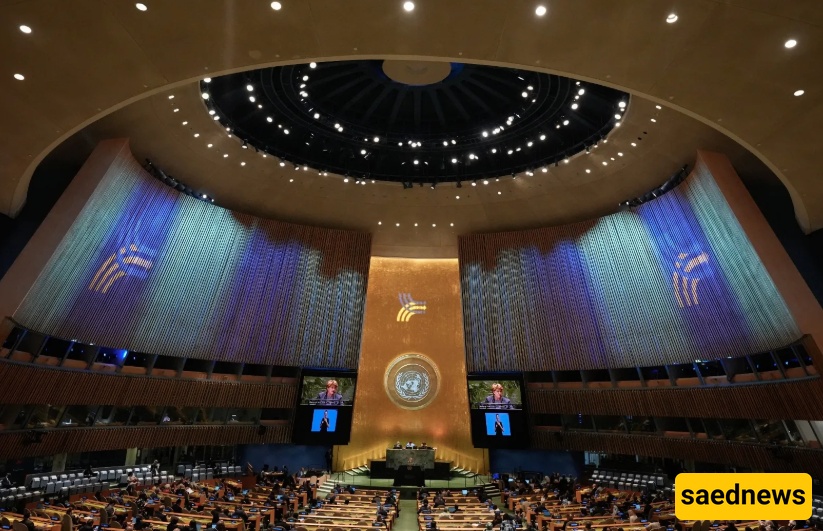SAEDNEWS: Australian Prime Minister Anthony Albanese announced today (August 11, 2025) that his country will officially recognize the State of Palestine at the United Nations General Assembly meeting in September.

According to SaedNews, quoting Reuters, Australian Prime Minister Anthony Albanese announced today that his country will officially recognize the State of Palestine at the United Nations General Assembly in September. This decision, aligned with recent moves by France, the UK, and Canada, aims to strengthen the two-state solution and increase diplomatic pressure on Israel. The Albanese government emphasized that this step will be accompanied by preconditions such as sidelining Hamas, dismantling military structures, and holding free elections by the Palestinian Authority to ensure that the future Palestinian government possesses the necessary legitimacy and stability.

This development occurs amid unprecedented global focus on resolving the Middle East crisis. Since the beginning of this year, over ten Western countries have declared their intention to join the 147 UN member states that have already recognized Palestine. France, the UK, and Canada, through their official announcements, have sent a clear message about the need to stop violence and return to political negotiations. Australia, which had previously taken a cautious stance, now solidifies its position among supporters of the two-state solution by joining this international wave.
In his remarks today, Albanese stressed that “Recognizing Palestine is humanity’s best hope to end the cycle of violence in the Middle East.” He added that this decision follows important guarantees received from the Palestinians, including removing Hamas’s role in the future government, reforming governance structures, and adherence to international law principles. According to the Prime Minister, these preconditions are essential not only for peace success but also to ensure accountability and effectiveness of the Palestinian government.
The diplomatic implications of this move for Australia are significant. On one hand, the country strengthens its position as an active player on the international stage, demonstrating readiness to pay a price for human values and human rights. On the other hand, this decision may cause tensions in relations with Israel and even the United States. However, Albanese emphasized that this decision was made independently of consultations with Washington and reflects Australia’s sovereign foreign policy.
Despite broad support, some domestic and international critics have warned that this decision may be largely symbolic and might not produce immediate changes on the ground. Opponents also worry that without genuine reforms in the Palestinian political structure, recognition might be ineffective or even harmful. Nonetheless, supporters believe that the political and diplomatic pressure resulting from such a move could pave the way for more serious negotiations.
Within Australia, this issue has long been debated. Key government ministers, including Jim Chalmers, have repeatedly emphasized that recognizing Palestine is “a matter of time, not possibility.” Foreign Minister Penny Wong has also warned that failure to act promptly could completely eliminate the chance of establishing an independent Palestinian state. These statements indicate that today’s decision is the result of a lengthy process of consultation and review.
Historically, Australia has adopted fluctuating policies regarding Palestine. In recent years, the country reversed some previous positions, including retracting the prior government’s recognition of Jerusalem as Israel’s capital and reverting to the use of the term “occupied Palestinian territories” in official documents. Full recognition of the Palestinian state is the final step in this policy shift.
Australia’s September decision will impact not only the political atmosphere in the Middle East but also the formation of a broader global coalition. If other countries join this trend, pressure on Israel to accept a peace framework based on the two-state principle will increase. At the same time, this move could motivate Palestinians to seriously pursue internal reforms and strengthen the foundations of a democratic and accountable government.
September of this year appears set to be a milestone in Middle East diplomacy; a point at which international convergence could turn the vision of peace from a hope into a real possibility.

